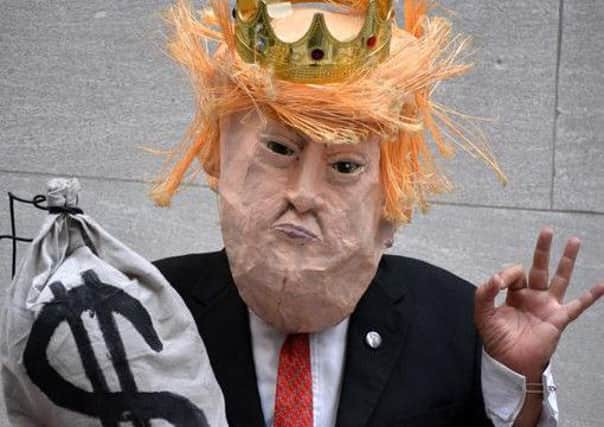General Election: It’s cover-up over Putin’s meddling, not Trump’s talk show call, we should fear – Kenny MacAskill


President Trump’s bizarre call into Nigel Farage’s radio programme was unusual in politics. National leaders normally decline to comment, let alone interfere in other countries’ elections. It’s many years since President De Gaulle’s “faux pas” in the 1960s, declaring “Vive Le Quebec Libre” from the City Hall in Montreal and which saw him swiftly ejected from Canada.
It crossed a line that has rarely been repeated. My own experience has always been of absolute decorum. Governments may agree or disagree but unless their own nation’s interest is threatened, they say little and do even less. Sympathy for independence was always evident from the Irish but nothing was going to be done that would jeopardise their relationship with London. Other countries were similar and the most that could be gained was friendship and the hope of future solidarity.
Advertisement
Hide AdAdvertisement
Hide AdTrump’s intervention speaks more to his close relationship with the arch Brexiteer and his refusal to abide by the usual political rules, let alone decency in campaigning, than a wider change in attitude.
I doubt it’ll have any influence on the final outcome even although it must have irked Tory Brexiteers to have their plan so roundly rubbished by a man they pin their hopes on. Their alternative world of glorious free trade deals, starting with the USA, must have been crashing about their ears as they listened.
There is though a delicious irony, given the Tories’ attitude during the independence referendum. Then, no matter how despondent or angered they are now by Trump, they were happy to call in favours from far and wide. Some more blatant, others more reluctant, a few of devastating effect, others minimal, but called in they were. Normal rules for elections, perhaps waved for a referendum in which a partner state’s existence was threatened.
Obama’s intervention
The most damaging were the comments by Manuel Barroso, the outgoing EU Commission President. His suggestion that Scotland’s entry to the EU could be blocked was difficult to deal with given his position. It’s since been shown to be untrue but it sent hares racing and with damaging effect.
A favour was no doubt called in by David Cameron from the former Portuguese Premier. He was a man with a noted right-wing past, having hosted the fateful meeting in the Azores when he, President Bush, and Prime Ministers Blair of Britain and Aznar of Spain agreed the invasion of Iraq. A further breach of decorum pales into insignificance in the face of that crime.
The tweet by President Obama on the eve of poll was of less significance, probably as it was so late in the day and it smacked of having been pleaded for by Cameron. Stating that he hoped the UK would stay “strong, robust and united”, it was never repudiated by staffers even though they clarified that it was a decision ultimately for the Scottish people.
Other interventions by right-wing leaders, such as the odious Tony Abbot, the Australian PM, were of no effect whatsoever. His comment that Yes supporters were “not the friends of justice... [or] fairness” fell flat. No doubt because of his insignificance and perhaps equally because they were absurd, not just in reality but also because they came from a man with his appalling record on immigration and human rights.
Russia report
But if you live by the sword you die by it. The Tories were happy to call in special favours from their friends and can hardly complain when the gruesome twosome of Trump and Farage do likewise. Hell mend them.
Advertisement
Hide AdAdvertisement
Hide AdBut to paraphrase Donald Rumsfeld, the arch war hawk, there’s known knowns and unknown unknowns. Which is why Boris Johnson’s Government’s refusal to publish the Parliament Security Committee’s report on foreign interference in elections is deeply concerning.
I listened to Dominic Grieve, now an independent MP but formerly an Attorney General in a Conservative administration. I’ve met with him and whilst I don’t share most of his political views, I found him a decent, sincere and honourable man. Not something I could say about every UK minister that I’ve met of varying parties.
When he’s adamant that there’s something wrong in the failure to publish, then I listen. He was circumspect in what he said as he clearly was abiding by the rules on non-disclosure prior to publication, his actions providing additional credibility for his position.
As with Trump and Mueller, I don’t think there’s a smoking gun but there’s still an issue to be concerned about as Russian interference in Western democracies is well known. What’s more concerning though is, as across the Atlantic, the Government’s interference in the democratic process.
Proroguing parliament was bad enough, undermining it would be far worse. That’s why we have a right to know and impeding it is totally unacceptable.
